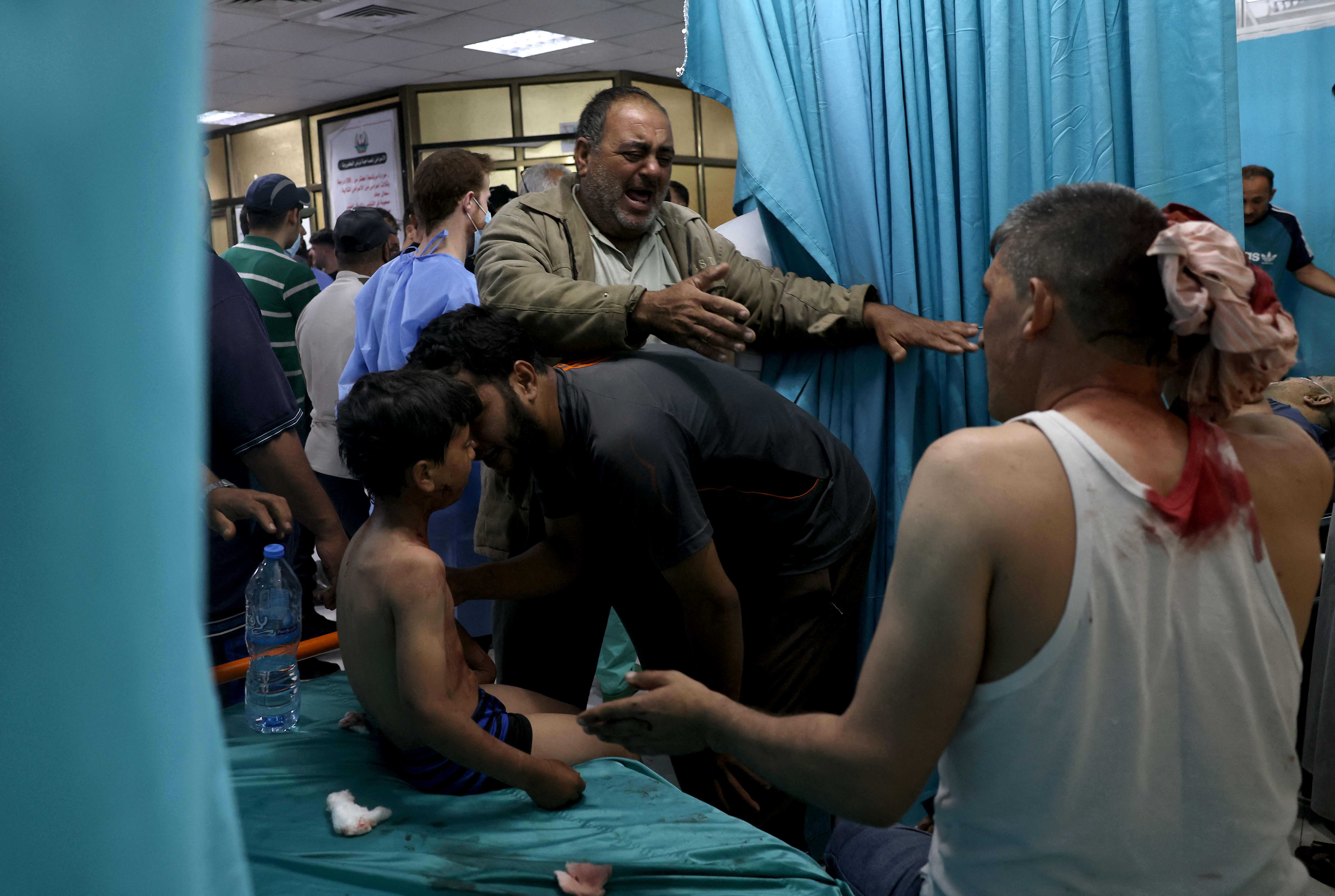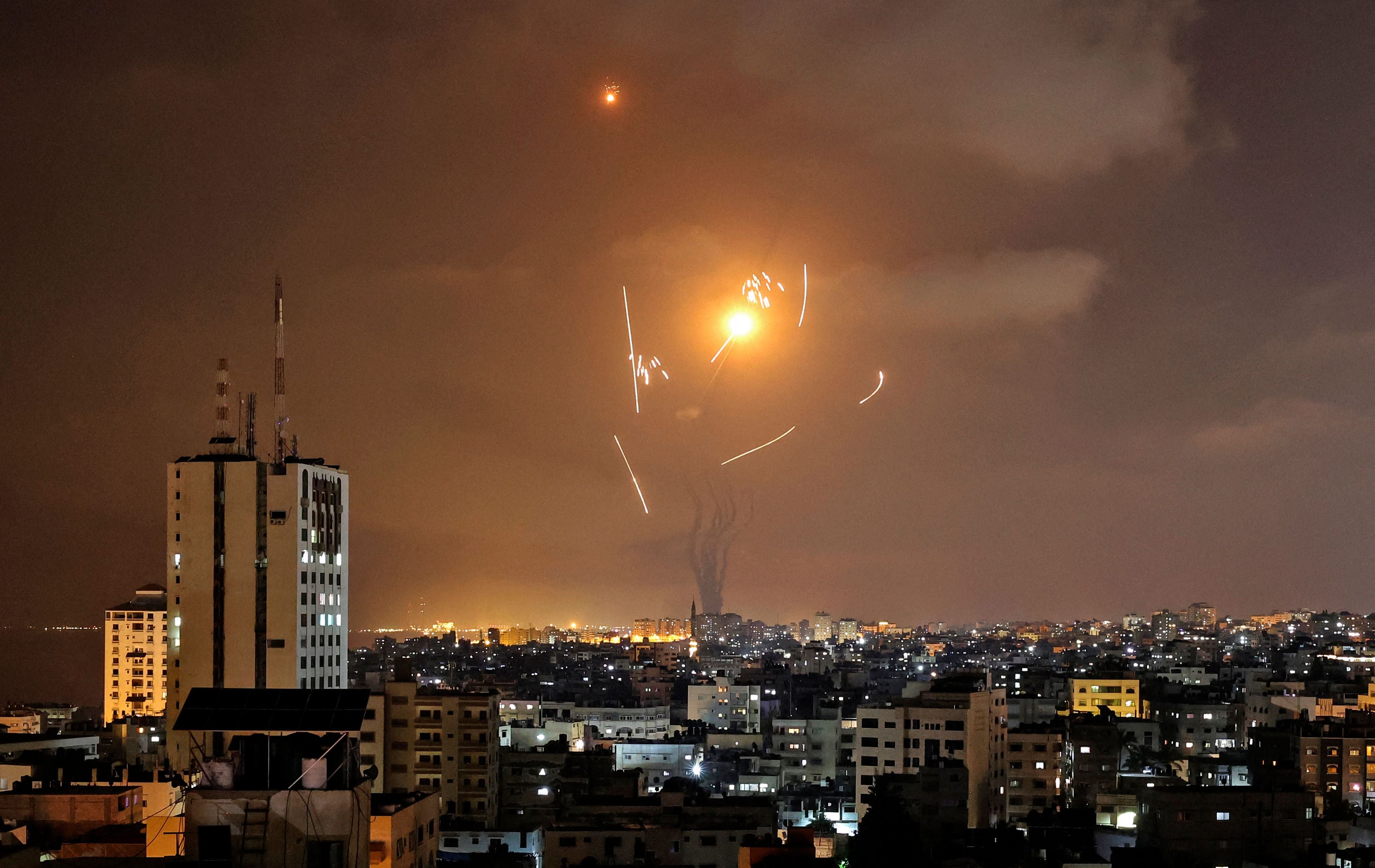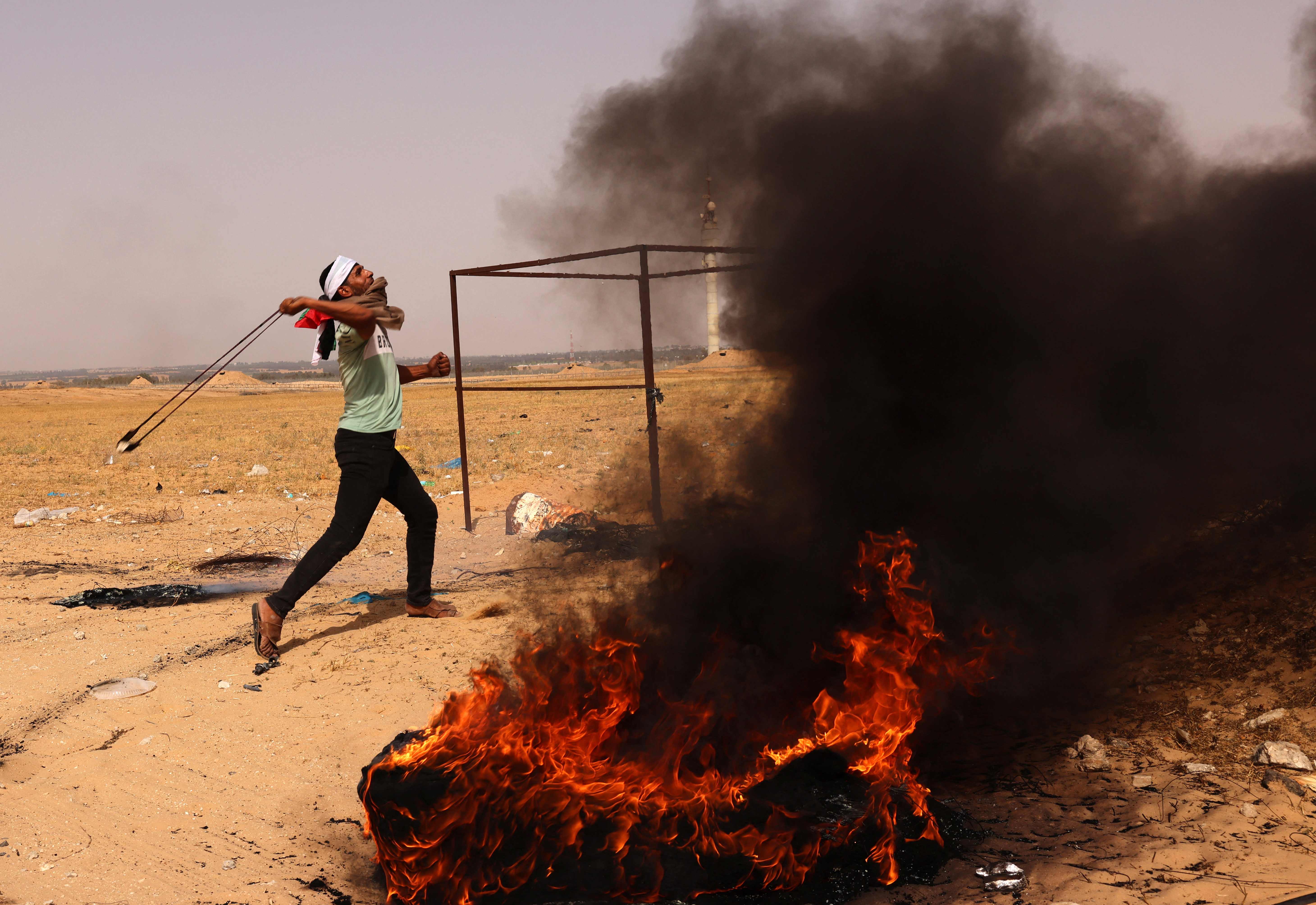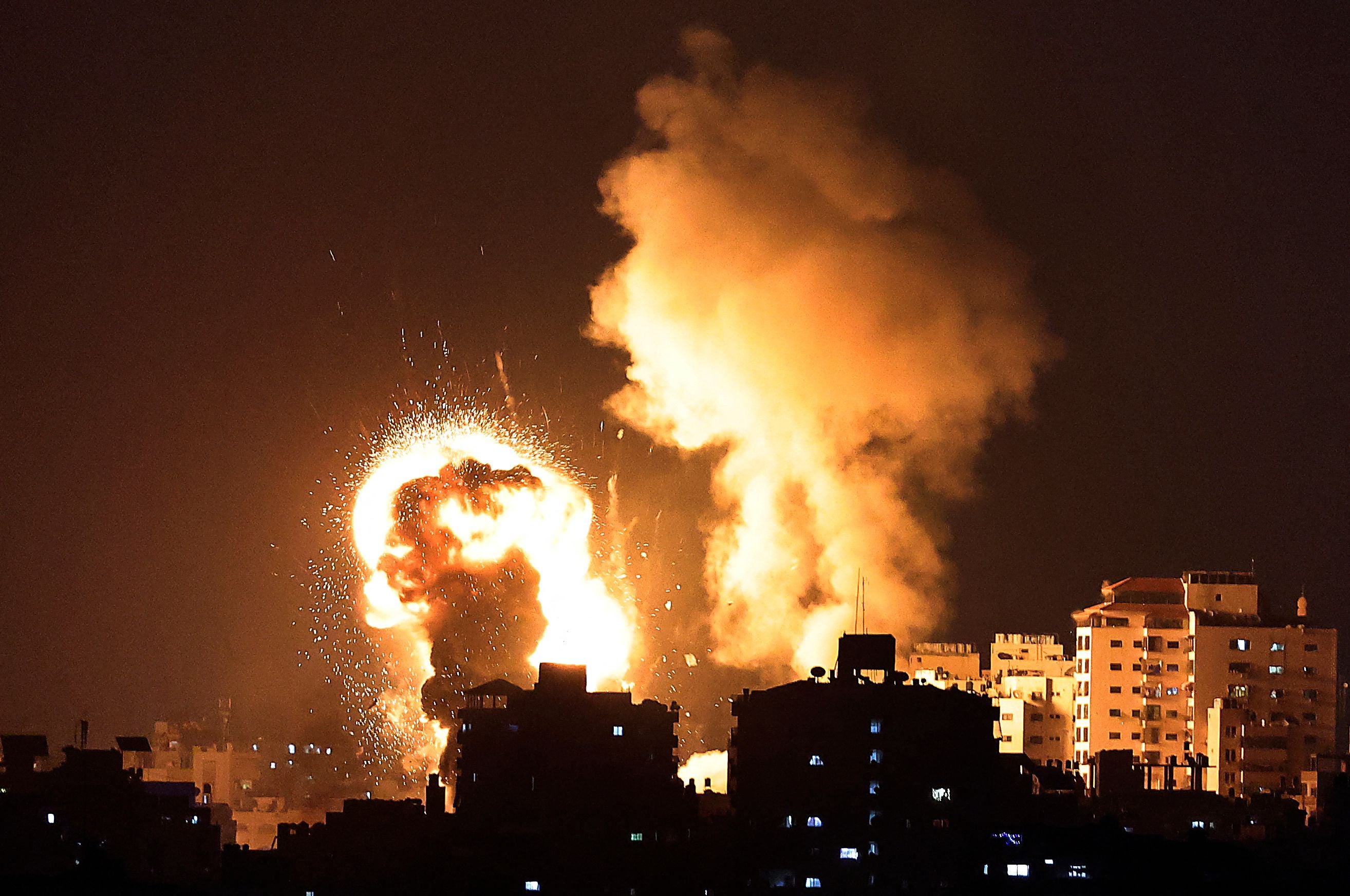Your support helps us to tell the story
From reproductive rights to climate change to Big Tech, The Independent is on the ground when the story is developing. Whether it's investigating the financials of Elon Musk's pro-Trump PAC or producing our latest documentary, 'The A Word', which shines a light on the American women fighting for reproductive rights, we know how important it is to parse out the facts from the messaging.
At such a critical moment in US history, we need reporters on the ground. Your donation allows us to keep sending journalists to speak to both sides of the story.
The Independent is trusted by Americans across the entire political spectrum. And unlike many other quality news outlets, we choose not to lock Americans out of our reporting and analysis with paywalls. We believe quality journalism should be available to everyone, paid for by those who can afford it.
Your support makes all the difference.Gaza’s health ministry has said that 20 people have been killed in Israeli airstrikes, launched after Hamas fired a barrage of rockets earlier in the day towards Jerusalem.
Health officials told The Independent that nine children were among the 20 dead and the youngest victim was just 10 years old. A further 65 people were injured.
Israel had warned that Palestinian militants would pay a “heavy price” for launching rockets towards Jerusalem.
Monday’s cross-border fire was the culmination – so far – of another day of violence that has raged through the contested city. Earlier, more than 300 Palestinians were injured in clashes that also saw Israeli security forces storm al-Aqsa mosque, the third-holiest site in Islam.
Furious Hamas, the militant group that rules Gaza, warned hostilities would “escalate” if Israeli forces did not withdraw from the al-Aqsa compound.
At 6pm, after the expiry of its ultimatum, Hamas fired six rockets towards Jerusalem, over 100 km away, for the first time in seven years.
Minutes later, rocket sirens wailed across the holy city, in nearby towns and in communities near Gaza. The Israeli military said some 50 rockets were fired in total.
Israeli prime minister Benjamin Netanyahu later accused Hamas of crossing a “red line” with its rocket attack on Jerusalem, and promised a tough response that could “continue for a while”.

The Israeli military said it had begun bombing Gaza, adding that it was “gearing up, preparing” for an open-ended military operation.
“We have started to attack Hamas military targets,” spokesperson Lieutenant Colonel Jonathan Conricus said, adding that six of the dozens of rockets fired from Gaza were launched towards Jerusalem’s outskirts, where a house was hit. No casualties were reported.
“We have the capabilities and authority and intention to deliver a severe blow to Hamas,” he added. “We are gearing up, preparing and allocating troops.”
Meanwhile, Abu Obeida, spokesperson for Hamas’s military wing, said the attack on Jerusalem was a response to what he called Israeli “crimes and aggression” in the city.
“This is a message the enemy has to understand well,” he said.
The US condemned the rocket fire as “unacceptable”, with US secretary of state Anthony Blinken saying that the rocket attacks needed to stop, and that all sides needed to take steps to de-escalate.

Jerusalem reached boiling point this weekend after weeks of simmering tensions during the holy month of Ramadan.
The touch-paper was a decision by Israeli authorities to cordon off the historic Damascus Gate to the Old City, where Palestinian families traditionally like to gather during Iftar, the evening meal to break the fast during this time.
After weeks of nightly unrest, Israeli police eventually withdrew the barricades.
But anger only boiled over again, in response to the possibility of the forced eviction of four Palestinian families from the nearby East Jerusalem neighbourhood of Sheikh Jarrah, on land claimed by Jewish settlers.
The deeply controversial decision, which Israel’s Supreme Court was due to rule on today but postponed due to unrest, could amount to war crimes according to the United Nations.
Despite international anger, the issue has been dismissed by Israel’s foreign ministry as a private “real-estate dispute”.
Amid protests and clashes, Israeli forces then beefed up their security presence in and around the Old City, the volcanic and emotional heart of the conflict, and later stormed the al-Aqsa mosque, throwing stun-grenades and tear-gas canisters at worshippers inside the building.
Palestinian protesters meanwhile hurled rockets, bottles and fireworks back at the security forces.
Tensions then reached breaking point on Monday afternoon as religious nationalist Israelis also gathered to celebrate “Jerusalem day”, an annual celebration marking Israel’s capture of East Jerusalem and the walled Old City during the 1967 Middle East war.
Many Palestinians regard it as a provocation, and it is often a flashpoint event.
Likely concerned about even more violence, Israeli security forces ordered that the route of the march celebrating Jerusalem Day be changed, and cordoned off Damascus Gate, bolstering the security presence in the area.
By the evening the booms of stun-grenades being thrown sounded across Jerusalem, as violence erupted in Sheikh Jarrah and al-Aqsa mosque once again.

In the south of the country, rocket fire continued to pound Israel while the Israelis bombarded targets in the blockaded strip.
The Israeli military said that they had struck two rocket launchers, two military posts and eight Hamas operatives.
One strike in northern Gaza killed nine people including three children.
A Gaza health spokesperson did not explicitly say that Israel was responsible, but told The Independent that “no one attacks Gaza apart from the Israelis”.
Ashraf al-Masri, a relative of those killed, told the Associated Press there was an explosion outside the house. “We don’t know where it came from,” he said. “We are trying to get the children for burial but the situation is difficult in Beit Hanoun and we are afraid to leave our houses.”
Back in Jerusalem in Sheikh Jarrah, where residents are still at threat of imminent eviction, protesters vowed to continue the rallies, telling The Independent they were defending their own homes and their families.
“We have been attacked for protecting our own houses,” said one Palestinian man who declined to be named. “The police are not protecting us – they are here to enforce the settler movement on us, to force us from our homes.”
The UN Security Council scheduled closed consultations on the situation on Monday.
Dominic Raab, the UK foreign secretary, called for “an immediate de-escalation on all sides”.
The United States and European Union have expressed deep concern over the unrest in Jerusalem, urging Israel to calm the situation and not carry out the planned evictions.
Arab allies of Israel, along with Turkey, have also condemned Israel’s actions.

Join our commenting forum
Join thought-provoking conversations, follow other Independent readers and see their replies
Comments